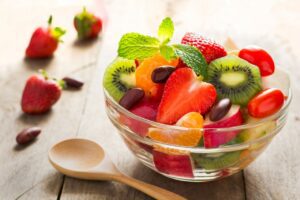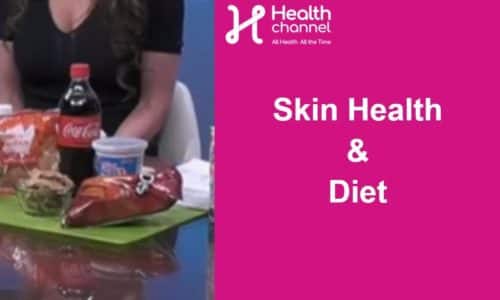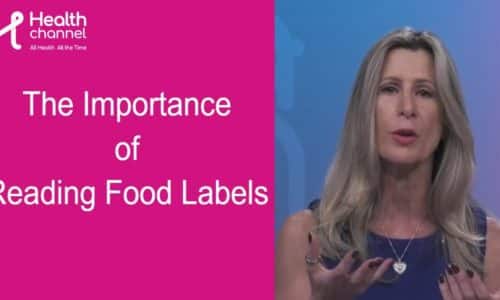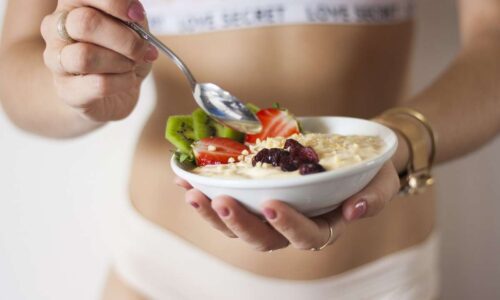What should I eat when its hot? |

I received an interesting question about whether or not a particular diet should be recommended in hot environments. I must confess that because I’m accustomed to air conditioning, I hadn’t given it much thought recently. Significant research has been done on the eating habits of military personnel stationed in both very cold and very hot environments, and the findings are worthy of note.
First of all, humans eat much less when temperature rises above 90 degrees Fahrenheit, and most mammals stop eating at temperatures above 104 F. There is a natural tendency to select liquids over solids at high temperatures, and carbohydrates are consumed in smaller quantities in the heat.
In one study comparing calorie consumption between soldiers stationed in the arctic versus the tropics, it was noted that those living in cold environments consumed about 25% more calories per day.
There is evidence that being overweight can interfere with heat dissipation, and that women are more at risk for heat stroke than are men, if both are sedentary in a hot environment. This may be due to the higher average body fat percentages of women.
Although hot food may raise body temperature, the “thermogenic effect” of food at any temperature is more significant than its physical temperature when consumed. In other words, the body has to work to break down and digest food, and this action creates more heat than the heat of the food itself. One study suggested that certain mammals have a 1 degree increase in body temperature for up to 3 hours after a meal, for example.
The bottom line is that our natural tendency is to eat less when it’s hot outside, and for most of us that’s a perfectly natural and desirable phenomenon. Eating hot food in hot temperatures is rarely dangerous, though we may feel uncomfortable sitting down to a bowl of hot soup in the sweltering heat. As for what’s healthy – the same diet recommendations hold year-round. The Mediterranean diet is one of my favorites and has significant research to back its benefits.
My main dietary considerations in the heat are:
- Food poisoning. Avoid leaving certain foods out in the heat for too long, lest they succumb to bacterial overgrowth. Summer buffets are a prime risk for food poisoning. The FDA recommends leaving food at room temperature for only 2 hours at a time, and being especially wary of “doggie bags” where saved food may be left unrefrigerated for too long.
- Adequate fluid intake. Dehydration is more likely to occur in the heat (obviously) and so consuming foods with a high water content, and drinking plenty of liquids is very important. Please see my health tip about water consumption for more details. A general rule of thumb for daily fluid needs: About 15.5 cups (3.7 liters) of fluids for men; About 11.5 cups (2.7 liters) of fluids a day for women.
- Hidden calories. It’s easy to forget that the fluids we drink can contain a lot of sugar, adding hundreds of unwanted calories to our daily totals. Be sure to fill up with water and low calorie fluids whenever possible. 4. Limit alcohol consumption. Again, when we are thirsty and dry it’s easier to take in too much liquid in the form of sugary or alcoholic beverages. Alcohol does have a diuretic effect on the body. For every 200mL of beer, for example, our body produces an extra 120 mL of urine (a total of 320mL) due to complicated hormonal changes in fluid regulation that occur with alcohol consumption. In large quantities alcohol can paradoxically contribute to dehydration and hangovers.
When it’s very hot outside and you do not have access to air conditioning, limiting/adjusting exercise is probably more important for your health (in avoiding heat stroke) than changing your food intake. In my next tip we’ll discuss safe summer sport and exercise strategies.
References
https://www.ncbi.nlm.nih.gov/books/NBK236229/
https://www.mayoclinic.org/healthy-lifestyle/nutrition-and-healthy-eating…
https://www.fda.gov/Food/ResourcesForYou/Consumers/ucm328131.htm
http://www.abc.net.au/science/articles/2012/02/28/3441707.htm
https://www.mayoclinic.org/diseases-conditions/hangovers/symptoms
If you have any more questions just Ask Hanna, our health advisors are here to help.
Image: ©Shutterstock / Kriang kan








